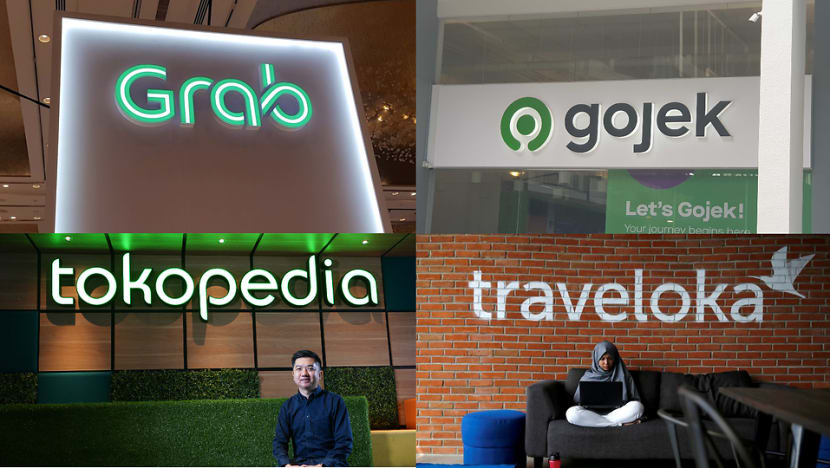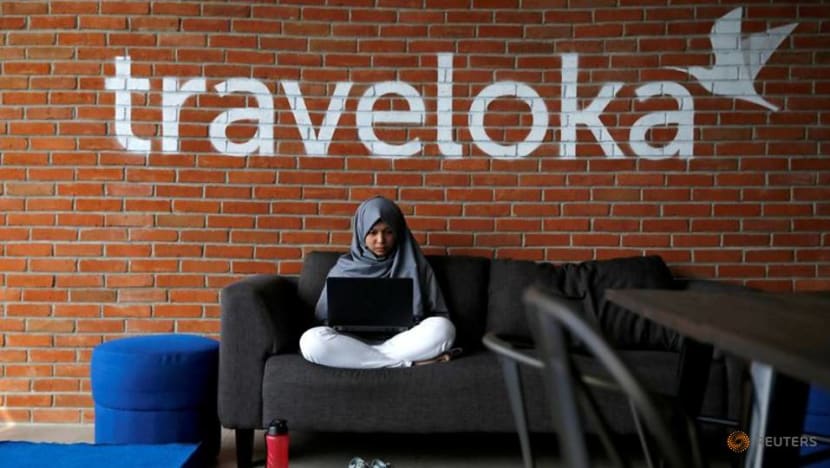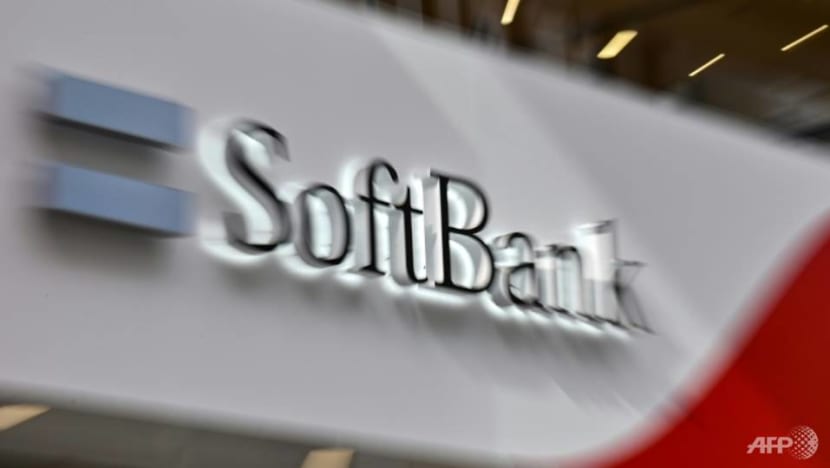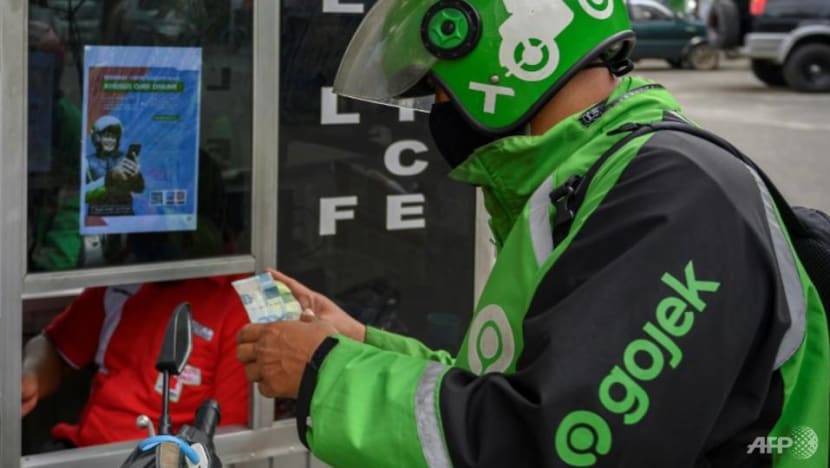commentary Commentary
Commentary: Why a bumper crop of Southeast Asian tech unicorns look set to IPO this year
With investors having pumped in billions, it comes as no surprise that pressure for an exit is mounting, say Joel Shen, Leong Chuo Ming and Gabriel Li of Withers KhattarWong.

Composite image of Grab, Gojek, Tokopedia and Traveloka logos.
SINGAPORE: In less than two months into 2021, we have witnessed more than half a dozen tech companies in the region announcing their plans to go public.
Among these are established Southeast Asian unicorns like Grab, Gojek, Tokopedia and Traveloka who have made public concrete discussions to explore new growth opportunities.
However, the initial public offering (IPO) ambitions of these tech unicorns, having transitioned from start-ups to the multi-billion dollar tech companies they are today, should be unsurprising.
READ: Commentary: Elon Musk gambles big on bitcoin to keep Tesla going strong
After all, their businesses have matured, they have gained significant market share and they are looking to shore up their balance sheets for the next phases of their growth.
Yet, the fever to go public is not exclusive to established unicorns. Smaller pre-unicorn scale-ups from the region have also started touting similar plans.
Tech pundits would readily cite Zilingo and Ruangguru as pre-unicorn scale-ups with serious ambitions to go public. Most recently, Carro which saw strong returns in 2020 made public their ambition to list within a two to three year time frame.
With investors having pumped billions into each of them, it comes as no surprise that pressure is mounting to deliver an exit.

Investments from venture capital funds into tech start-ups as early as 2013 are beginning to mature, so many principals might be banking on 2021 to be a blockbuster year with listings bringing healthy exits to their respective funds.
As early as 2019, companies such as Traveloka and Tokopedia were in serious talks with investment banks for a dual listing in the US and in the region, according to several media reports.
HOW 2020 CHANGED MARKET CONDITIONS
However, poor economic conditions, and weak market sentiments - no thanks to Uber Technologies' belly flopped IPO and WeWork's disastrous attempt to list the moment it filed its prospectus -- meant that valuations and liquidity were not in favour of a listing.
Then came the year that was 2020, as the pandemic ravaged the global economy, shut down businesses, and brought international travel to an abrupt and almost complete standstill.
The Southeast Asian tech companies were not spared. Smove, a car leasing company founded in Singapore, saw its revenue plummet 85 per cent, forcing it to liquidate its operational arm and sell its intellectual property.
READ: Commentary: The gig economy – a surprise boost from the pandemic and in Singapore, it’s not going anywhere
READ: Commentary: Don’t be too quick to write off the sharing economy, even with COVID-19
Stoqo Teknologi Indonesia and Airy, both Indonesian start-ups, ceased operations in 2020. Tokopedia, Grab and Gojek all carried out staff and salary cuts, as Traveloka, being in the business of travel, also took a huge hit.
Despite all of these setbacks, 2020 revealed the market's appetite for investing in the technology space, especially since the global economy was fraught with uncertainty, and traditional brick and mortar businesses revealed their vulnerability in the face of change.
SEA Limited, probably one of the few publicly listed options to invest in technology in Southeast Asia, saw astronomical growth in 2020, with its share price rising by 400 per cent.
In February, to capitalise on the hot market for tech stocks, Softbank publicly urged its high-profile portfolio companies in its US$100 billion Vision Fund – such as China’s Bytedance and Didi Chuxing and Southeast Asia’s Grab - to accelerate plans to list.
If anything, 2020 was a year of reckoning for Southeast Asian tech companies.

Those who survived, came out leaner and stronger. Grab saw its third quarter revenue bounce back to 95 per cent of pre-COVID levels, and closed a US$2 billion term loan facility in February 2021.
Gojek managed to secure a US$1.2 billion round in March 2020 and raised an additional US$525 million in June and November. It then went on to acquire a 22 per cent stake in Indonesia's Bank Jago in December.
Traveloka's Vietnam business has surpassed pre-COVID-19 levels, is nearly back to normal levels in Thailand, and is at half of pre-COVID levels in Indonesia.
RED HOT YEAR
On the back of such recovery, 2021 is shaping up to be a red hot year in the Southeast Asian tech scene creating enthusiasm for listings. The market is buzzing with murmurs of prospective plans.
READ: Commentary: A Gojek-Tokopedia merger has ramifications for regional unicorns including Grab and Sea
Apart from the pressure to exit and strong market sentiments, a pent-up post pandemic appetite might account for some part of the strong impetus to go public.
For example, last year saw a surge of newly-listed special purpose acquisition companies (SPACs) in the US.
SPACs are special purpose shell companies listed, without assets or business activities, in order to acquire a business.
The acquisition is typically funded with a combination of cash and shares, and because the valuation of the target is usually at least four to five times more than the SPAC, the owners of the target will usually end up being the majority shareholder of the listed SPAC due to the consideration paid in shares, hence why it’s known as a "reverse merger".

Interest in SPACs among Southeast Asian unicorns has surfaced. Tokopedia was in talks with Richard Li and Peter Thiel's Bridgetown Holdings SPAC but the focus has now shifted to its possible merger with Gojek.
The emergence of SPACs could have played a part in re-energising these unicorns’ listing plans, adding enthusiasm to the 2021 IPO scene.
Unlike a traditional IPO, SPACs offer a much faster and less cumbersome route to going public. The transaction risk is lower, and the time, effort and cost needed for a SPAC listing is far less than a traditional IPO.
READ: Commentary: Singapore's game plan to court more billionaires to come here is paying off
These make SPACs a much more attractive option for listing for tech companies.
As they originate from US capital markets, SPACs also fit nicely into Southeast Asian tech companies' IPO plans, enabling them to achieve the kind of valuation and liquidity more aligned with their expectations, than listing in Southeast Asia alone.
For the SPACs, Southeast Asia offers them an emerging and exciting opportunity, with potential for growth.
The tech companies of Southeast Asia are attractive as they are a part of the fast growing digital economy of the region.
A report published by Temasek, Google and Bain & Company shows that with a population of over 650 million, Southeast Asia's digital economy is poised to grow to US$300 billion (S$415 billion) by 2025, three times its current annual size, given the region's relatively young population and increasing Internet access. It is therefore an attractive sector for investors seeking a high growth portfolio.

So is 2021 a good year for Southeast Asian tech companies to list?
Even with the high levels of interest, the success of such plans and eventual IPOs will greatly depend on the global economy's speed of recovery, and whether these companies can turn their businesses profitable.
Investors are increasingly looking towards investments turning a profit, rather than for these companies to attract more investors.
READ: Commentary: Why aren't tech unicorns listing on the SGX?
The pandemic has given these companies a chance to trim excess fat, and turn towards a more profitable operating model. With vaccines rolling out all over the world, the economy looks on track for a strong recovery.
Gear up then as the next Southeast Asian tech listing shouldn’t be far away.
Joel Shen is a Partner in the Corporate team at Withers KhattarWong. Leong Chuo Ming is a Partner in the Corporate team at Withers KhattarWong. Gabriel Li is an Associate in the Corporate team at Withers KhattarWong.

















